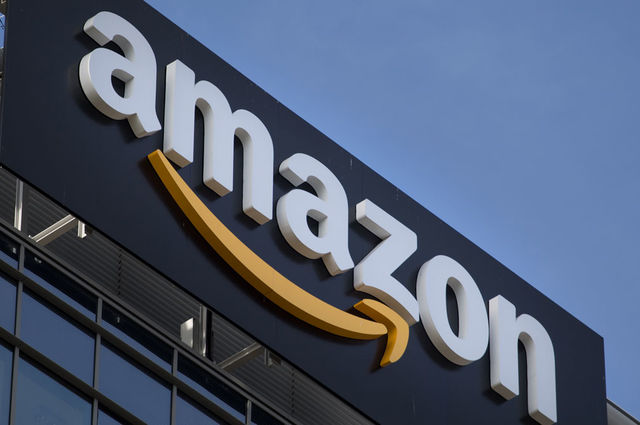Amazon Explore - Is This Another Attempt to Enter the Travel Industry?
12 experts shared their view
Amazon Explore launched recently, tries to capture consumer demand for experiencing virtual tours and activities in destinations, such as how to cook a dish, personalized guided tours of cities and attractions.
Some local experiences executives believe that this is Amazon's initial step toward entering in full force the highly lucrative and digitally-underserved "Tours & Activities/ Local Experiences" travel sector and that it would be an "easy implementation" for Amazon to become an online retailer/online travel agency in the local experiences sector and can do this "just by opening a category" on their site.
Other industry experts believe that these virtual tours are more like curated reality cooking and travel shows, more like Amazon Prime TV series, and not yet another attempt by Amazon to enter the travel business as an OTA and that the online retail giant does not have the expertise and technology to enter the travel space as a major player.
The question is, is Amazon Explore yet another attempt by Amazon to enter the travel space as a major player and online travel agency/retailer?
Amazon has been testing, under the radar, with several travel-related services for a while now, mainly in India. Just last week, for example, it partnered with the Indian Railway Catering and Tourism Corporation to sell train tickets. We all know that. But I honestly doubt Explore is another attempt to enter the travel space, rather another step in retail domination. Amazon Explore, in fact, lets users "shop local on the other side of the world," and I would not be surprised if this feature will be used more by personal shoppers than travel guides.
Looking at the travel world from inside travel lends us a perspective that is both more informed and more narrow. When we look at a potential new entrant, we're biased to think it will enter through conventional pathways. I think Amazon looks at travel as an outsider, which explains why they failed with their previous entrance and allows them to come up with creative entry points into travel like Amazon Explore.
- I believe AE is definitely a foray into the travel world and that they will test it like crazy to see how customers react, but I don't think they'll be using the same yardsticks we might think of when evaluating the success of a new travel service. Since they've been forced to cede the mobile market to Apple and Google (note the fire phone disaster) they've decided that the home is where they want to play and Alexa is going to function as the 'operating system' for the home. Mobile is very powerful, but far less so in the home where you want to let the whole family turn on the TV or play music or whatever they want to do. This week's announcements about the new Amazon Alexa Guard home security, new Echo devices, and upgraded 'hunches' get them further embedded as an "ambient (you aren't aware of it, it's just there) computing presence" in the home. And as HC partner Max Rayner is fond of saying, if you can get someone to use one of your products you're at risk of losing them when the next shiny version of that product comes along. But get them to use 2 or 3 of your products (as in a bundle) and they're customers for life.
- So amazon Explore can give amazon customers a way to travel (sort of) without all the cost (and risk of infection for today's customers) and it's something Amazon can build a very deep and defensible moat on because it will be a scale-driven business. It's more like building AWS than going into traditional travel, and there are few other companies with the scale to compete in building something similar and zero that have the penetration into the home that Amazon has. Amazon Explore is also another service to put into the Prime subscription at some point to build the value of that bundle and thereby reduce churn. I expect that once they have sufficient scale and testing knowledge around exactly how this service will work, we will see some AE services built into Prime and others as an add-on at a significant discount to the price for non-members. (Disney did something roughly similar with Mulan on Disney+ Premier Access)
- Once the AE service becomes more widespread in 2-3 years, I expect there will be a version of AE that involves wearing a virtual reality headset connected to your guide (possibly in another country) who will be wearing a helmet with cameras that capture her view in all directions. As she walks around, you see what she sees, and you can speak to and hear each other and go on a guided tour in real-time without leaving your home. You'll be able to see the Coliseum or the Fountains of Trevi on Saturday morning and then go watch your kids play baseball in the afternoon at your local park. And the new olive oil decanter and 6 tins of olive oil you bought from the store in Rome will arrive with one of your other amazon orders in 2 weeks.
- So yes, I do think it's part of an entrance into travel, but it's on Amazon's terms supporting Amazon's bundling strategy, it will carry a deep competitive moat, and it will be aimed at one of the few pieces of the travel industry not already driven to diminishing marginal returns by the OTAs.
Amazon has to massively increase its top-line revenue if it is going to continue is share price growth. It gets more difficult to do that as it grows. What industries can it get into that can help deliver that? Travel will not be Amazon's number one choice but they will not ignore it either. For all the positives that travel could bring to Amazon, they are fully aware of all the downsides.
I see this digital play as more of a retail experiment. Get great content linked with physical products and it will sell. Get great content linked with celebrity hosts and you sell a lot. Eventually, you may be selling entertainment, product, and actual travel experience.
We all know that Amazon Prime is ripe for a travel service. This will not be it I see a much bigger entry into travel for Amazon on the back of purchase. Travel companies and travel tech companies are a lot cheaper now than last year!
Amazon is the world's #1 retailer. Period. There is no #2, with Walmart a distant #3 (perhaps). Walmart is expanding as fast as they can into the online space. Amazon needs to build revenue. They already sell pretty much every product on earth, so logically, the next frontier is services. Travel makes sense. It has a high margin and has an opportunity for up-sell. My hunch: Amazon buys Expedia...why not!
Although largely free from competitors, given its highly fragmented, and in some cases semi-professional nature, the activities/tours/experience sector would be hard, not easy, for Amazon to exploit.
While undoubtedly it could channel some of its vast traffic to such a new product category, and such experiences would be highly complementary to its existing portfolio of lifestyle products, the challenge would be to cost-effectively consolidate supply from the multitude of small, primarily independent, operators that provide the richness sought by customers. Even if it went down the expensive and time-consuming process OpenTable-like route of providing suppliers with equipment and systems to digitize the management of their offer, it would still struggle to attract sufficient quantity and variety of supply to provide a compelling offer for its demanding customer base. And all this trouble for a small percentage commission of a relatively small transaction fee?
Thus my feeling is that this play is more media orientated, where similarly there are strong complements with Prime Video; digital content is easier and cheaper to source, and monetize is easier through advertising and subscription models.
In my opinion, it's highly unlikely Amazon is trying to move into the OTA space and become the next Expedia or Booking.com. They don't have the expertise or infrastructure currently and have other places to invest for growth. That said, there is a play in the local products and services market. Tour and attractions can fit into this nicely and it provides potential incremental revenue for Amazon. I believe it also helps de-commoditize artisan and local products and services to help them receive higher value and prices (e.g. Etsy). Probably a win-win. The other reality is that with so many people stuck at home and not traveling right now, in the worst case, this is a temporary campaign during COVID that's driving more traffic and engagement to the site with the possibility of generating sales. Really no way to lose here for anyone.
Odd to think that we would refer to Amazon as not having the 'expertise and technology to enter the travel space as a major player". Was it that long ago that opinion was that if anyone could Amazon could? Are we not envious of how Amazon has streamlined the progression of conversion? Didn't anyone notice that Prime Video is a major entertainment producer and award winner? What exactly is the 'travel landscape' these days? With hotels selling bonds for future stays and common space for local school education pods? Where hospitality is done at a distance and less, (contact) is safer. Amazon and those lesser to scale than them are innovators. Discovering and offering what might be sold to those who might want to buy it. Nothing is made without a potential market, It's one of the reasons we build hotels where we did. With the uncertainty of at the very least short term of travel for many, why not offer a means of experience, (escape) on a platform they already have to an audience that can be introduced to a variety of options in a current and future tense to purchase 'things' for? Or am I the only one watching travel shows and videos?
I cannot think of a reason why Amazon would not want to get into the tourism industry. Although at this point, Amazon Explore primarily competes against Airbnb Experience, Amazon can easily turn itself into another OTA.
As one of the biggest e-commerce sites, Amazon has in-depth business insights about consumer behaviors. Today, Amazon's Alexa has become a popular guest-room device for customer service. Such a voice-based gadget works particularly well during the pandemic when travelers demand contactless self-services. Every time a traveler tells Alexa to search for a hotel stay, a nearby attraction, or a restaurant, Amazon will collect additional insights about the customer. Amazon can hence turn such a business intelligence about customers into a competitive advantage over other OTAs or hotels.
I haven't seen any sign that Amazon plans to compete aggressively in travel. That could change. But Amazon Explore likely represents just another test, rather than a full commitment to the travel industry. Why? A few reasons.
First, Amazon competes in e-commerce generally by providing customers low prices, broad selection, and overall convenience, with benefits such as fast, free shipping. However, the infrastructure Amazon has built that allows it to deliver those customer benefits to provide Amazon little value in travel. OTAs already can provide an equal or greater selection. Travel doesn't require shipping, warehousing, or logistics. And without those advantages, Amazon holds no particular pricing leverage.
Second, Amazon makes the majority of its revenues through platforms (online store, AWS, Marketplace, Alexa, advertising) and subscriptions (Prime). As noted, its platforms aren't set up for travel. So, a better question might be, "How does travel help make Prime more valuable to customers... and by extension to Amazon?" If Amazon can provide a travel benefit to Prime members that makes them more likely to subscribe/maintain their Prime subscription, they'd definitely include one. But it would represent a feature that enhances their core offering, rather than a category unto itself. Again, that's not an argument in favor of Amazon making a bold travel play.
Finally, when Amazon wants to get into a category in a big way, they've either invested heavily (Echo devices) or acquired strong players (Twitch, Ring, Zappos, Whole Foods, Audible, Zoox, Kiva Systems) to establish -- or expand -- their dominance. I haven't seen any sign of Amazon making either move in travel. Contrast that with Google's acquisitions of ITA and Ruba a decade ago. Until Amazon does make an acquisition or other investment there, their small-scale tests probably mean only small-scale results.
Obviously, any of these could change. Amazon's got a large war chest and has proved willing to deploy it to their advantage. But until they make bigger moves more directly related to travel, I suspect they're happy to provide cloud services/advertising opportunities to travel companies and continue sticking with where their competitive advantages lie.
The one-stop-shop nature of the Amazon site means it's often the first choice for consumers and this invite-only public beta to users in the U.S. will no doubt provide great insights into consumer behaviour, habits and preferences with live-streamed experiences.
Many of the experiences are being offered by local tour operators.
If the Amazon Explore initiative proves popular, profitable and scalable - why not apply the same innovation for 'hotel travel experts' and re-invent what traditional travel agents have done for decades, but within the Amazon online retail experience?
Amazon could become a virtual travel agent platform with expert hotel recommendations, with a one-on-one information-sharing experience, just like the Amazon Explore trial is testing. Why become an OTA when you can offer a better experience than any other OTA?
Amazon has tried unsuccessfully to tackle the online travel space twice in the past. Back in 2013-2015, Amazon attempted to do this “organically” with its ill-conceived Amazon Local and Amazon Destinations. In 2019 Amazon launched a flight search and booking service in India, powered by online travel agency Cleartrip, buried deep into its Amazon Pay section.
I do not believe Amazon Explore is yet another attempt by the online retail giant to enter the travel business. I see this selection of curated virtual tours (how to cook a dish, personalized guided tours of cities and attractions) more like a new Amazon Prime Streaming video series. With only 30 “virtual episodes” in North America, 25 in Europe, and 5 in Australia, how serious a threat is this to any existing player? TripAdvisor's Viator has over 1 million local experiences, 200,000 bookable in real-time!
Now, if Amazon with its gargantuan market cap of $1.6 trillion acquires TripAdvisor with its puny market cap of $2.6 billion, then this will be an entry into the travel industry with a bang!
Amazon knows better than any other player how to sell online. By integrating its retail offerings into TripAdvisor's local experiences offerings and v.v. Amazon could change online local tours, activities, and experiences forever.
it depends on how you classify 'travel'.
If travel for you is a physical thing, then no. If travel for you is watching a travel guide, like yesterdays travel destination book or glossy and that extends into the physical experience then perhaps yes.
From the Amazon perspective it appears to be a variation on digital content that they are already well adept at providing to the consumer. In this approach monetized directly by the provider.
Another entry in to travel? I could see this in essence as an advertising platform that combines some style of 'taste test' about a product or destination launching into a booking lead direct to the provider. Perhaps just another revenue stream for the end product and then a way to draw eyes to Amazon for travel style content and some more transaction revenue.
From little things, big things grow.












